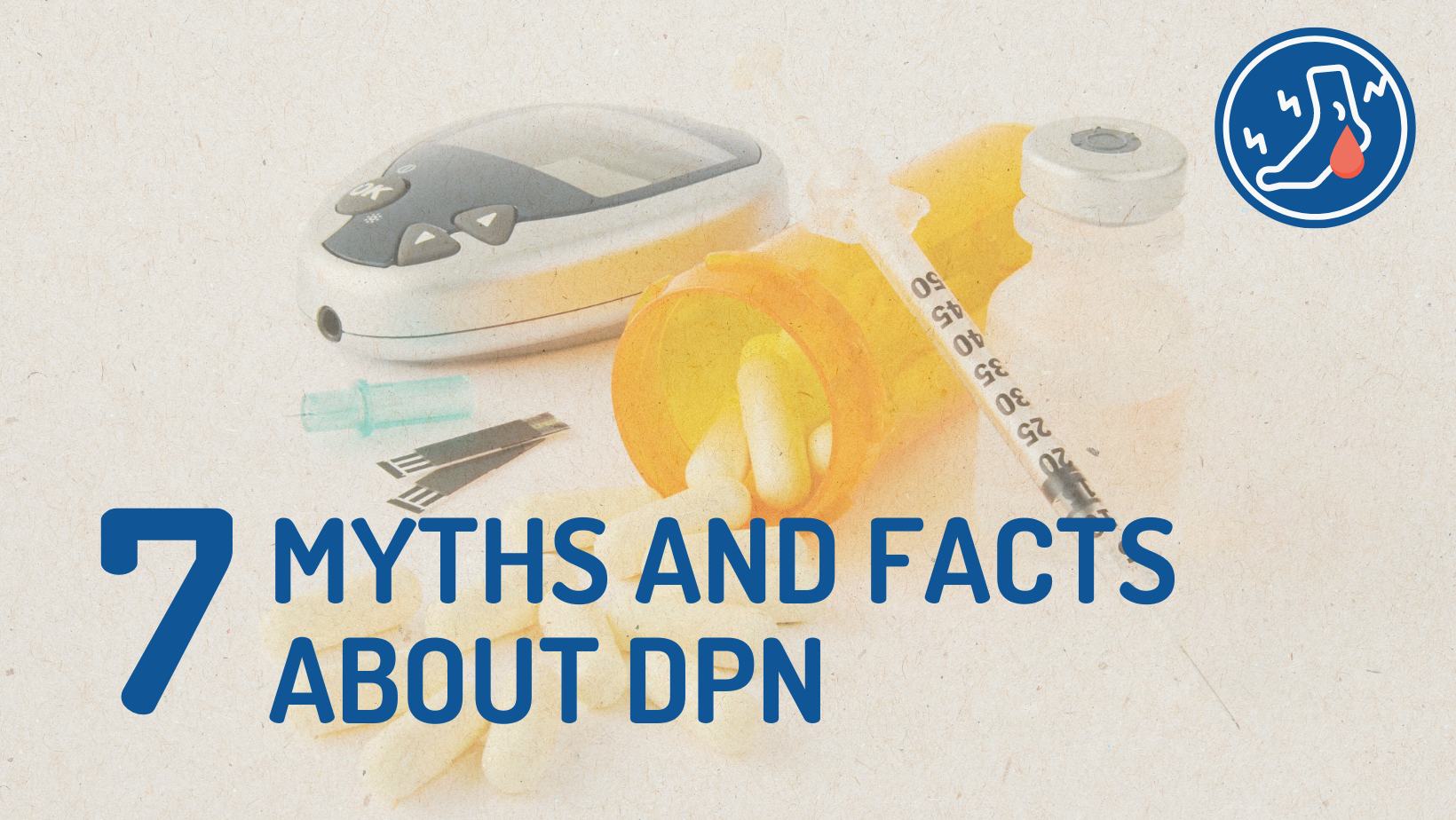
- Myth: Diabetic peripheral neuropathy (DPN) is only a concern for people with long-term diabetes.
Fact: DPN can develop in individuals with both type 1 and type 2 diabetes, regardless of how long they’ve had the condition. It can also start to show symptoms even when blood sugar levels are well-managed. In some cases, people develop DPN symptoms even before their diabetes has been diagnosed.
- Myth: Numbness and tingling are the only symptoms of DPN.
Fact: While numbness, tingling, and loss of sensation are common symptoms, DPN can also cause pain, burning sensations, sensitivity to touch, muscle weakness, and reduced mobility. Symptoms can vary widely from person to person.
- Myth: If you don’t have symptoms, you don’t have DPN.
Fact: DPN can be present even if you aren’t experiencing noticeable symptoms. Once you are diagnosed with diabetes, regular check-ups are crucial for early detection of DPN to help prevent or reduce complications.
- Myth: DPN only affects the feet.
Fact: Although DPN most commonly affects the feet and often starts there, the condition can also affect the legs, hands, and arms. It can lead to problems with balance, coordination, gait, and fine motor skills.
- Myth: There is no way to manage or treat DPN.
Fact: While DPN is not curable, it can be managed effectively with medications, lifestyle changes, and proper diabetes management. Treatments can help alleviate symptoms and improve quality of life. Early detection can also help slow the disease’s progression.
- Myth: Over-the-counter pain relievers are sufficient for managing DPN pain.
Fact: Over-the-counter pain relievers may not be effective, particularly long-term, for DPN pain. The condition often requires a specific, tailored regimen that may include prescription medications, topical treatments, physical therapy, and separate diabetes management. Consult with a health care provider for appropriate options.
- Myth: DPN is only a minor issue and doesn’t lead to serious complications.
Fact: DPN can lead to severe complications, including foot ulcers, infections, and amputations, especially if not properly managed. Some of the disease’s complications—including reduced balance, unhealed wounds, and amputations—can become fatal. Foot care, regular foot checks, early intervention, and ongoing management and treatment are essential to help prevent these outcomes.
Our 2024 KNOWvember campaign is made possible through the generous support of our sponsors, Averitas and Vertex Pharmaceuticals.
The U.S. Pain Foundation independently developed the content without review from its sponsors. This information is for educational purposes only and may not be used as a substitute for advice from a health care professional.
.
Subscribe to our newsletter
U.S. Pain Foundation is a 501 (c)(3) nonprofit organization dedicated to serving those who live with conditions that cause chronic pain, as well as their caregivers and care providers. Learn more.
Our Sponsors
U.S. Pain Foundation relies on the generosity of donations and grants. We are especially thankful to our Corporate Council for sustaining our programs and services year-round. Learn more.
Contact Us
U.S. Pain Foundation, Inc.
15 North Main Street, Unit 100
West Hartford, CT 06107
Telephone: 800.910.2462
Email:
contact@uspainfoundation.org
Tax ID number: 26-2703521
All Content Copyright 2021 | All rights reserved. U.S. Pain Foundation is a qualified 501(c)(3) tax-exempt organization. Disclaimer
